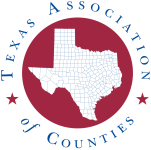Blog | July 24, 2025
The 89th Texas Legislature Recap: What Counties Should Know
Texas legislators filed more than 8,700 bills, making it the busiest session in over three decades

This year’s session was one for the books. Texas legislators filed more than 8,700 bills, making it the busiest session in over three decades. Yet only 14% of those bills passed, the lowest success rate in recent history. And it’s not over yet. A special session will convene July 21, where lawmakers will discuss several vetoed bills.
Though many issues remain up for debate, the 89th Texas legislative session produced several notable developments for counties, both in terms of new support for county operations and ongoing policy challenges.
Positive Legislative Outcomes for Counties
Several new laws promise to ease burdens on county governments:
-
House Bill 1109 exempts counties from the state motor fuels tax. This should relieve pressure on county budgets and support property tax relief efforts.
-
House Bill 3000 establishes a grant program for rural counties to purchase ambulances, a major success for the County Judges and Commissioners Association of Texas.
-
House Bill 2282 raises the law enforcement reimbursement fee for processing arrest warrants from $50 to $75, a priority issue for the Justices of the Peace and Constables Association (JPCA).
-
House Bill 2492, another JPCA priority, extends the detention period for individuals arrested for family violence offenses.
Budget Provisions Supporting County Needs
The Legislature passed a two-year, $338 billion state budget that includes targeted funding for county services:
-
$90 million earmarked for rural ambulance support.
-
$20 million allocated for sheriffs working in collaboration with U.S. Immigration and Customs Enforcement (ICE).
For a detailed look at the final budget amounts for county-related items, download TAC’s budget worksheet.
Ongoing Concerns and Close Calls
While some bills passed with bipartisan support, others sparked debate:
-
Senate Bill 2753: Restructures early voting into a continuous 12-day period, including two full weekends. While aimed at increasing voter turnout, the law lacks accompanying state funding — leaving counties to manage the financial burden.
-
Senate Bill 2858 and Senate Bill 19: Though they failed to pass, these bills would have expanded state control over local governance and prohibited taxpayer-funded lobbying, respectively.
What’s Next
The Texas legislative special session begins July 21. Action items include discussions about SB 3, which would have prohibited the sale of hemp products containing THC, as well as SB 648, which would have added new requirements for affidavits of heirship.
The Texas Association of Counties hosts its Legislative Conference Aug. 27 – 29 at the Fairmont Austin Hotel. Topics include election law changes, bail reform and other key policy areas.
The November 2025 election will feature 17 constitutional amendments, many with direct implications for county governments.
Other Notable Bills
-
House Bill 30 - HB 30 restricts counties and cities from raising tax rates following natural disasters. Effective Jan. 1.
-
House Bill 33 - HB 33 mandates law enforcement agencies to implement active shooter response plans. Effective Sept. 1.
-
House Bill 150 - HB 150 establishes the Texas Cyber Command. Effective Sept. 1.
-
House Bill 1109 - HB 1109 removes motor fuel taxes for counties and allows related tax credits or reimbursements. Took effect July 1.
-
House Bill 2282 - HB 2282 raises the warrant execution reimbursement from $50 to $75. Effective Sept. 1.
-
House Bill 2492 - HB 2492 extends the detention "cooling-off" period for family violence arrests. Effective Sept. 1.
-
House Bill 2894 - HB 2894 provides state reimbursement to counties for lost property tax revenue due to the 100% disabled veterans exemption. Effective Sept. 1.
-
House Bill 3000 - HB 3000 creates a grant program to help qualified rural counties acquire ambulances. Effective Sept. 1.
-
Senate Bill 7 - SB 7 allocates funding for water infrastructure improvements. Some portions effective Sept. 1; others contingent on voter approval of House Joint Resolution 7, one of 17 proposed constitutional amendments on the Nov. 4 ballot.
-
Senate Bill 8 - SB 8 requires sheriffs in certain counties to collaborate with ICE for immigration enforcement. Effective Jan. 1.
-
Senate Bill 9 - SB 9 serves as the comprehensive bail reform bill supporting Senate Joint Resolution 5, which would permit judges to deny bail for certain violent offenses if approved by voters on Nov. 4. Portions of SB 9 take effect Sept. 1, with others beginning Jan. 1 and April 1, 2026.

